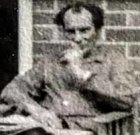
Murder Most Foul Page #2
- UNRATED
- Year:
- 1964
- 90 min
- 385 Views
- I'll bear that in mind. Thank you.
That'll be
the insurance man paying out...
They don't like it
when the unforeseen does occur.
Persistence, Mr Stringer.
Persistence. Foot in door.
- I hope you've brought it in cash.
- Brought what?
I don't want the same trouble
as when my John passed away.
- I don't understand.
- Aren't you from the insurance?
Oh, no, madam. I was hoping to
interest you in improving your mind.
I was wondering if you'd allow me
to show you the new Wonder book.
Do.
Come in, Mr... come in.
Murder She Said,
Murder She Said, Murder She Said.
This section on our feathered friends
is most comprehensive.
Everything
from an albatross to a shrike.
- A what?
- A shrike.
So named for its incessant chatter
and predatory instincts.
It has a habit of impaling its prey.
How interesting.
I've got a woman upstairs. I'll get
rid of her and we'll have some tea.
Please don't do that.
I can't trespass on your generosity.
Oh, dear, poor Mr Stringer.
Fancy me mistaking you for the
insurance man. You're much too nice.
- Oh, really?
- Well, of course you are.
You don't really
look like a salesman, do you?
- Don't I?
- No.
- So you're a bachelor, Mr Stringer?
- Er, yes.
Oh, I can always tell
and I'm a widow.
How do you do?
- I see you got what you wanted.
- Yes.
Perhaps the gentlemen
would care to help me with these?
- Indeed.
- Thank you.
I'll leave you the book, Mrs Thomas.
Brood on it, will you?
- What about the tea?
- Good day, Mrs Thomas.
So, you're a bachelor, Mr Stringer.
- Not staying to tea?
- Oh, no, Miss Marple.
Dear me,
the lady will be disappointed. Up!
Miss Marple, I assure you,
I gave that woman no encouragement.
It is of small importance,
Mr Stringer.
Good heavens, I've got it! Jim!
Look, there's the page
of the Milchester Gazette
I took from Mrs McGinty's room.
Here's the identical page
I got from the newspaper offices.
I've snipped out the same words
and letters and produced this.
A rose. A rose?
Milchester 862, please.
Is that Lady Cynthia Waterhouse?
Lady who?
No, this is Mrs Gladys Thomas.
I'm so sorry,
I have the wrong number.
As I thought. 862 is the telephone
number of Mrs McGinty's cottage.
I'm at a loss.
This type of message is typical
of a certain kind of criminal -
the blackmailer.
Yes, I think Mrs McGinty
may have been one.
- Dear me.
- Well, consider...
performances of Murder She Said
here in Milchester
in the week of May 12th to 19th;
The same week, incidentally,
as this issue of the Gazette.
Here we have six programmes.
Translation
Translate and read this script in other languages:
Select another language:
- - Select -
- 简体中文 (Chinese - Simplified)
- 繁體中文 (Chinese - Traditional)
- Español (Spanish)
- Esperanto (Esperanto)
- 日本語 (Japanese)
- Português (Portuguese)
- Deutsch (German)
- العربية (Arabic)
- Français (French)
- Русский (Russian)
- ಕನ್ನಡ (Kannada)
- 한국어 (Korean)
- עברית (Hebrew)
- Gaeilge (Irish)
- Українська (Ukrainian)
- اردو (Urdu)
- Magyar (Hungarian)
- मानक हिन्दी (Hindi)
- Indonesia (Indonesian)
- Italiano (Italian)
- தமிழ் (Tamil)
- Türkçe (Turkish)
- తెలుగు (Telugu)
- ภาษาไทย (Thai)
- Tiếng Việt (Vietnamese)
- Čeština (Czech)
- Polski (Polish)
- Bahasa Indonesia (Indonesian)
- Românește (Romanian)
- Nederlands (Dutch)
- Ελληνικά (Greek)
- Latinum (Latin)
- Svenska (Swedish)
- Dansk (Danish)
- Suomi (Finnish)
- فارسی (Persian)
- ייִדיש (Yiddish)
- հայերեն (Armenian)
- Norsk (Norwegian)
- English (English)
Citation
Use the citation below to add this screenplay to your bibliography:
Style:MLAChicagoAPA
"Murder Most Foul" Scripts.com. STANDS4 LLC, 2024. Web. 3 May 2024. <https://www.scripts.com/script/murder_most_foul_14247>.



Discuss this script with the community:
Report Comment
We're doing our best to make sure our content is useful, accurate and safe.
If by any chance you spot an inappropriate comment while navigating through our website please use this form to let us know, and we'll take care of it shortly.
Attachment
You need to be logged in to favorite.
Log In